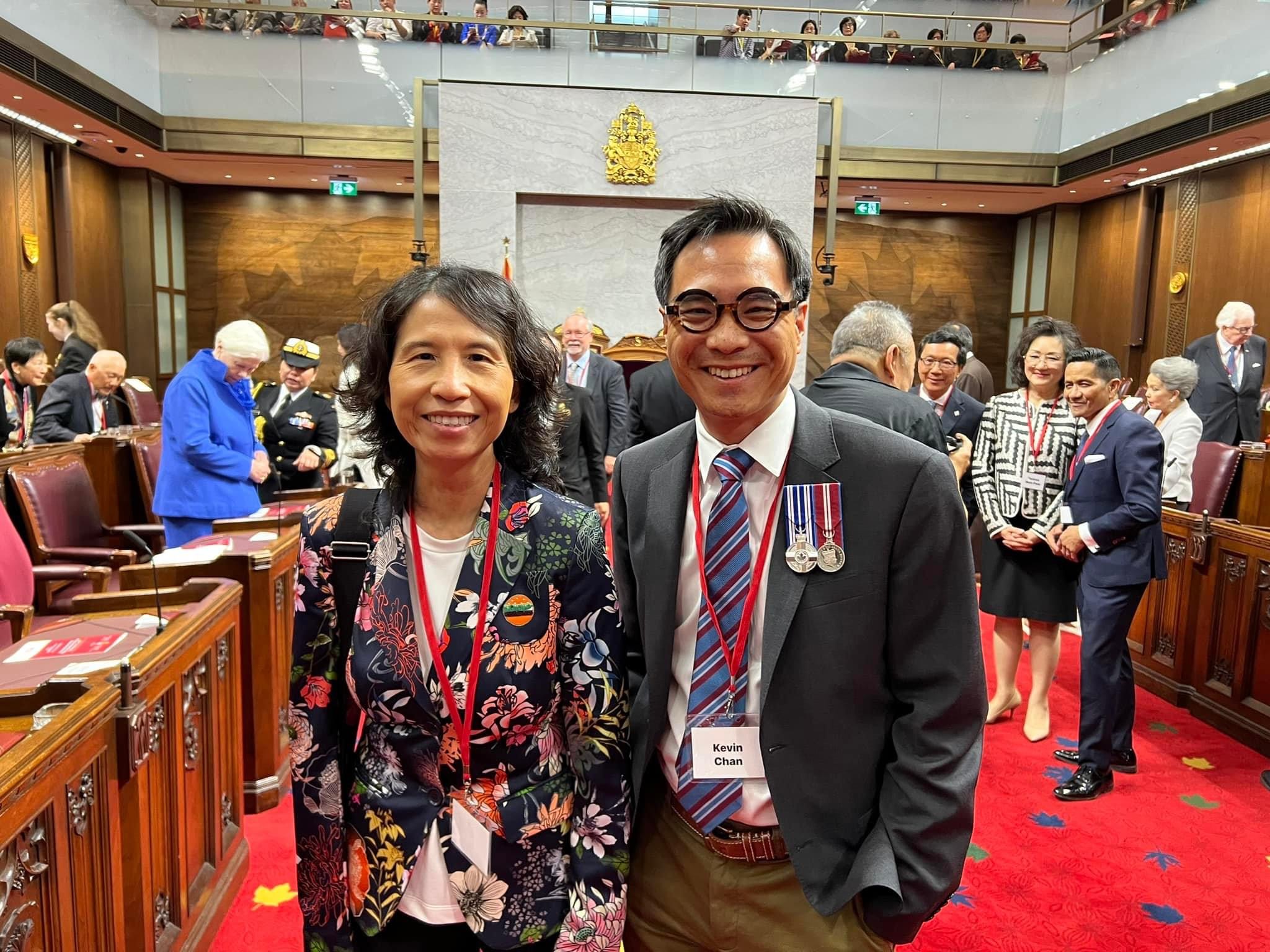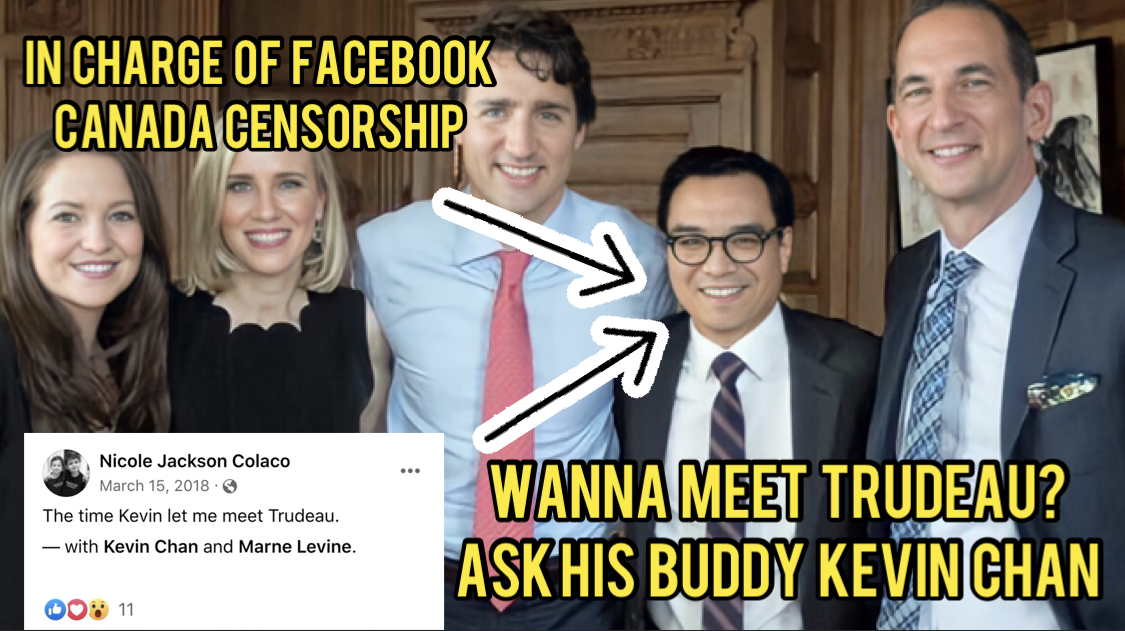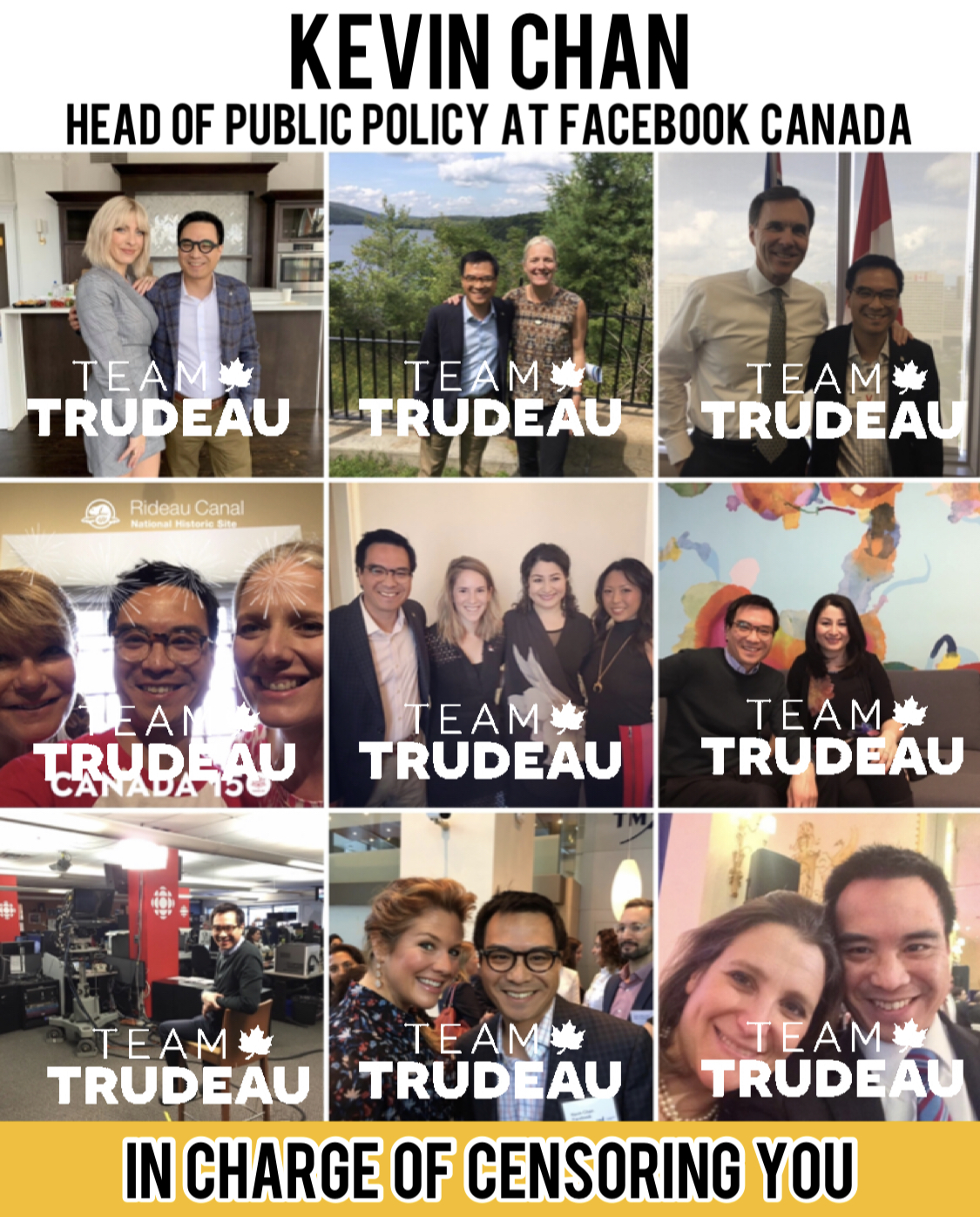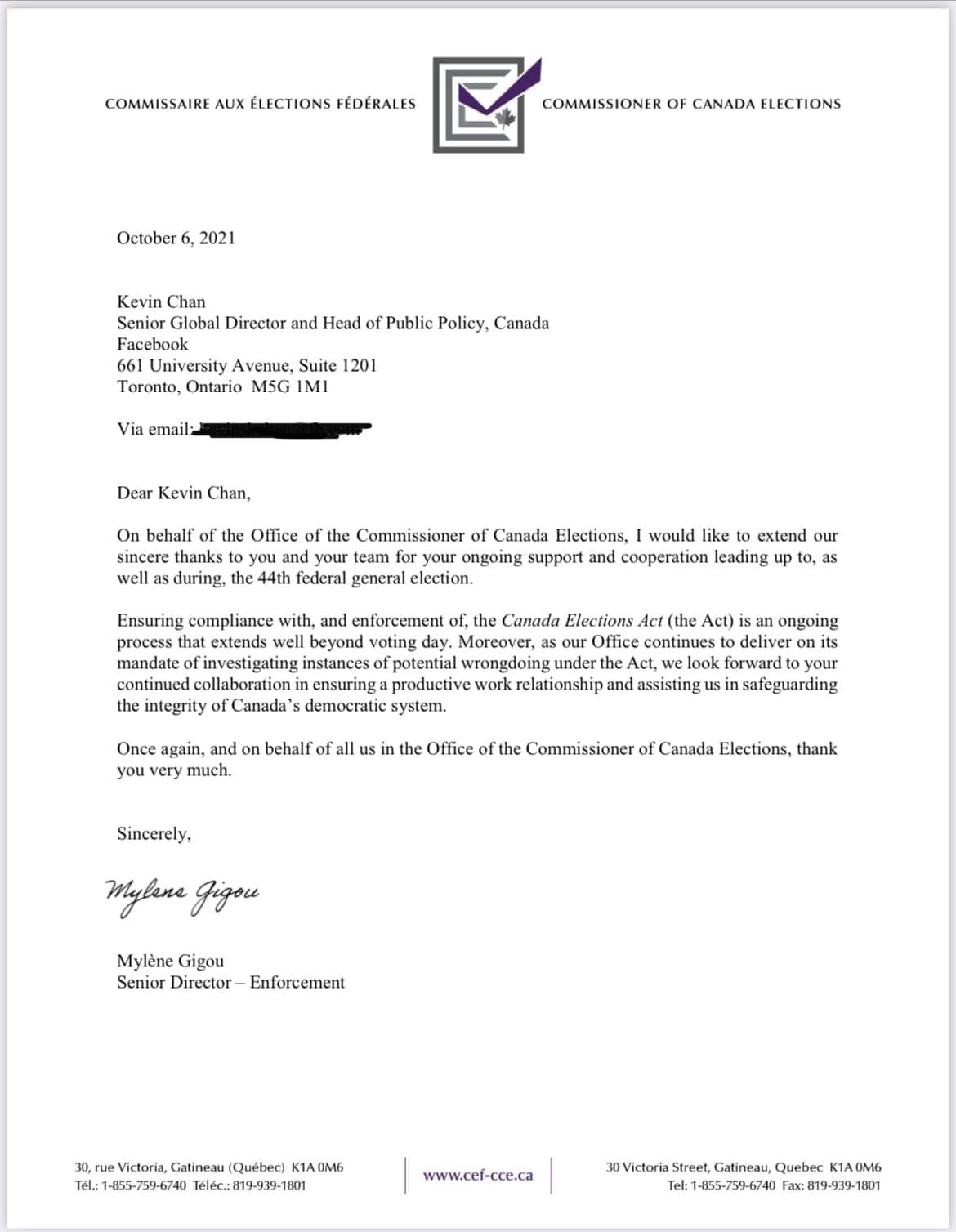The controversy revolves around Curran’s influential role within Facebook/Meta Canada’s organizational hierarchy. These allegations suggest her involvement in suppressing public opinion, stifling dissent, and engineering justifications for censorship on the platform. These actions strike at the core of our digital spaces’ integrity, raising profound concerns about open dialogue, democratic values, and transparency.
Adding to the complexity is the close connection between Kevin Chan, another influential figure in Facebook/Meta Canada, and Prime Minister Justin Trudeau. Speculations have arisen regarding Chan’s close relationship with the Prime Minister and potential undue influence over high-level political meetings, intensifying the focus on Curran’s actions.






A Facebook Page with 46,000 Canadian Followers Disappears: A Puzzling Mystery
Moreover, a recent revelation has added a layer of intrigue to this already complex narrative. It has come to light that a Facebook page called “Vote Canada,” boasting an impressive 46,000 followers, mysteriously vanished from the platform. What’s particularly baffling is that this page was restricted to Canadian audiences only, meaning it had a high-density following of Canadian citizens. However, it was reportedly removed without any explanation, complaint process, or any sort of specific post being cited as a violation.
The page’s owner, understandably distressed by this abrupt disappearance, claimed that there was no viable mechanism to dispute the removal, and no contact was established with Facebook’s oversight board. This lack of transparency raises significant concerns about the mechanisms in place to address such incidents.
A Darker Twist: Allegations of Hacking and Privacy Invasion
What makes this situation even more troubling is the claim made by the page owner that prior to the page’s removal, their privacy settings were triggered, and their Facebook account was hacked. The page owner alleges that they had more than one personal Facebook account – one for personal marketplace and ad purposes, and another for administration of the “Vote Canada” page. Both of these accounts mysteriously disappeared and were removed.
The implication here is that hacking a Facebook account typically wouldn’t grant access to all the other accounts attached to the phone’s ID number. This suggests that only someone within Facebook could have accomplished such a feat, raising questions about the company’s involvement in these troubling events. The removal of the “Vote Canada” page with its dedicated Canadian audience further fuels suspicions of public manipulation.
The Rachel Curran Connection: A Web of Deceit?
In this convoluted narrative, Rachel Curran’s name looms large. It is alleged that the owner of the removed “Vote Canada” page managed to obtain Rachel Curran’s phone number, (613) 852-9344 which was accidentally added to a Facebook page via WhatsApp. What followed was an astonishing revelation. After a call to this number, Miss Curran spent 60 seconds explaining that it was a wrong number and that she did not work at Meta, Facebook’s parent company. She apologized for the misunderstanding and abruptly hung up.
However, the plot thickens. When the caller tried to contact Curran again, they were greeted with a voicemail message saying, “Hello. You have reached Rachel Curran at Facebook and Meta.” This revelation raises serious questions about Curran’s honesty and her involvement with Facebook/Meta, potentially contradicting her initial denial of any connection.
The Broader Implications: A Threat to Democracy and Digital Integrity
Amidst these startling revelations, the broader implications of these allegations become even more significant. In an era where social media platforms play a pivotal role in shaping public discourse and political landscapes, the accusations against Rachel Curran emphasize the urgent need for vigilant oversight and ethical conduct.
The removal of a Facebook page with 46,000 Canadian-only followers raises concerns about the platform’s role in manipulating public opinion, especially during critical elections. The lack of transparency surrounding content removal and the alleged hacking incidents further erodes trust in Facebook as a platform for open and democratic communication.
Additionally, the controversy surrounding Facebook/Meta’s fact-checking procedures calls into question their commitment to objective facts and unbiased information dissemination. If the platform’s mechanisms are indeed influenced by subjective narratives, this could have profound consequences for the reliability of information available to users.
A Call for Accountability and Transparency
Given the gravity of these allegations and their implications for national democracies and public opinion, there is a growing demand for accountability and transparency from Facebook/Meta and its CEO, Mark Zuckerberg. Rachel Curran’s actions and her response to these allegations now face intense public scrutiny in the pursuit of safeguarding democratic values and the purity of our digital spaces.
In an age where social media platforms wield substantial influence in shaping public discourse and political landscapes, the accusations against Rachel Curran underscore the pressing need for vigilant oversight and ethical behavior. As investigations continue and the public seeks answers, the future of Facebook/Meta Canada’s reputation and its impact on the democratic process hang in the balance.
This ongoing saga will undoubtedly mold our perception and interactions with digital platforms in the years ahead, underscoring the critical importance of upholding democratic values and transparency in our increasingly digitalized world. The integrity of our digital spaces and the protection of open dialogue remain paramount as we navigate these complex and troubling allegations.


Recent Comments